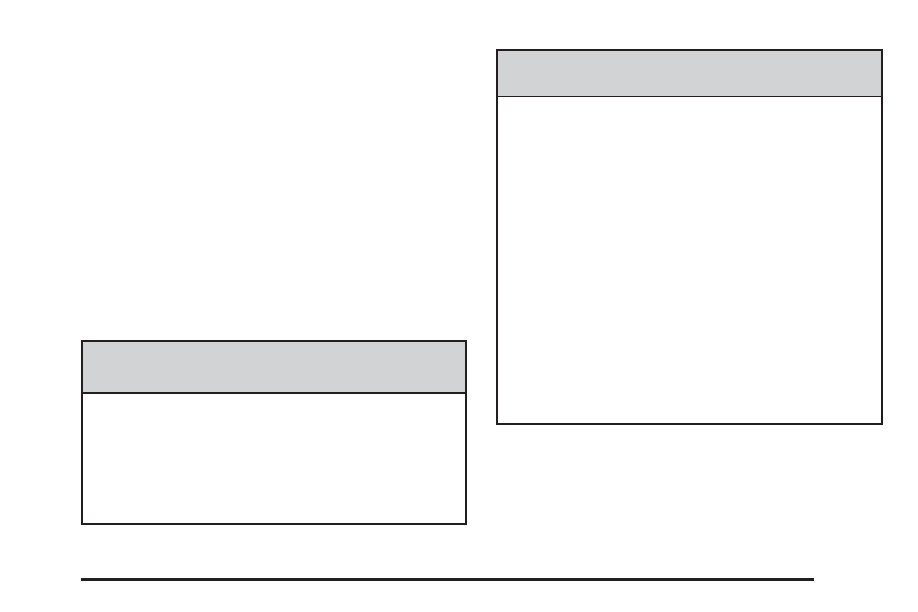Caution – Saab 2006 9-7X User Manual
Page 277

Your trailer’s brake system can tap into the vehicle’s
hydraulic brake system only if:
•
The trailer parts can withstand 3,000 psi
(20 650 kPa) of pressure.
•
The trailer’s brake system will use less than
0.02 cubic inch (0.3 cc) of fluid from your vehicle’s
master cylinder. Otherwise, both braking systems
won’t work well. You could even lose your brakes.
If everything checks out this far, then make the brake
fluid tap at the port on the master cylinder that
sends fluid to the rear brakes. But don’t use copper
tubing for this. If you do, it will bend and finally break off.
Use steel brake tubing.
Driving with a Trailer
{
CAUTION:
If you have a rear-most window open and you
pull a trailer with your vehicle, carbon monoxide
(CO) could come into your vehicle. You cannot
see or smell CO.
CAUTION:
(Continued)
CAUTION:
(Continued)
It can cause unconsciousness or death. See
Engine Exhaust on page 2-30. To maximize
your safety when towing a trailer:
•
Have your exhaust system inspected for
leaks, and make necessary repairs before
starting on your trip.
•
Keep the rear-most windows closed.
•
If exhaust does come into your vehicle
through a window in the rear or another
opening, drive with your front, main heating
or cooling system on and with the fan on
any speed. This will bring fresh, outside air
into your vehicle. Do not use the climate
control setting for maximum air because it
only recirculates the air inside your vehicle.
See Dual Automatic Climate Control System
on page 3-19.
Towing a trailer requires a certain amount of experience.
Before setting out for the open road, you’ll want to get to
know your rig. Acquaint yourself with the feel of handling
and braking with the added weight of the trailer. And
always keep in mind that the vehicle you are driving is
now a good deal longer and not nearly as responsive as
your vehicle is by itself.
4-47